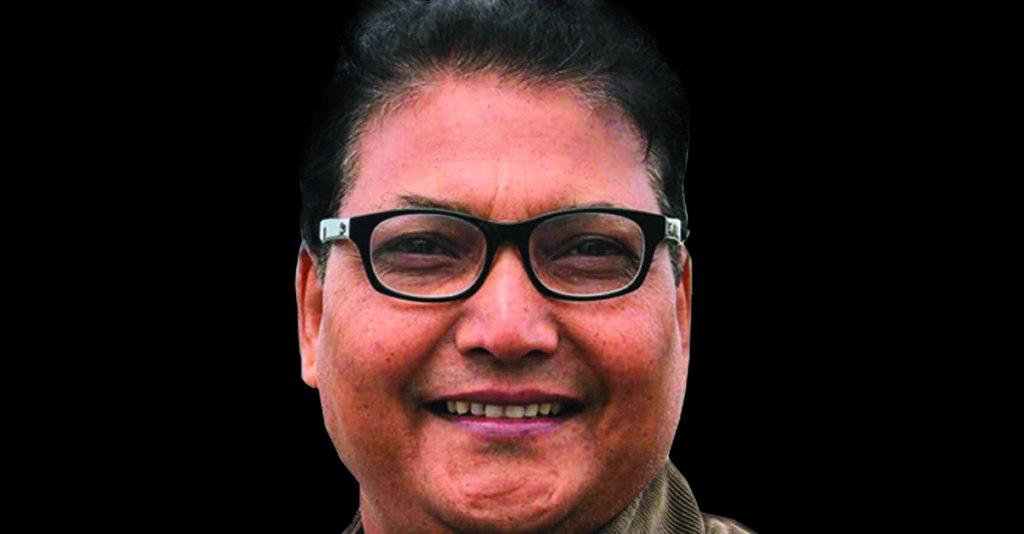Krishna Dulal Barua
Issue: Vol. IV, No. 2, August-October, 2025
Before meeting him personally in 2002 for the first time, I knew about Anubhav Tulasi as an accomplished Assamese poet who hailed from our neighbouring village of Tulasimukh in Nagaon. My humble attempt to render Nilmani Phookan Sir’s selected poems into English, after the master poet’s nod of assent, brought me closer and closer to the poets, Anubhav Tulasi and Jiban Narah. Whenever I asked Phookan Sir for an explanation of some of his metaphorical expressions, he would say that his poems are open for any interpretation and I could take my liberties according to the promptings of my sensitivity. This landed me at an acute point of helplessness for Phookan Sir wasn’t very much aware of my limitations. From hereon it was Anubhav da who came to my aid most endearingly and offered me wonderful tips to handle the challenges. Moreover, he even volunteered to type the entire manuscript of the collection.

Another factor that helped me develop an intimacy with Anubhav da was that his father-in-law’s place is just a kilometre away from our residence in Nagaon town. Whenever he came to Nagaon, he always visited us within an hour of his arrival. With our gradual association, I began to realise that he was a voracious reader who loved to keep himself abreast of the times and the literary trends. He had an inclination for literary criticism and translation and was a keen enthusiast of films. He was an active member of the Gauhati Cine Club.
Anubhav da had an impressive personality. His words, even during informal conversations, were always measured and the sophisticated tone of his voice infused a lot of warmth and affection during his interactions. Everyone respected him for his unassuming disposition.
His collection of poems published in 2019— Banan Kari Porha Luitar Pani (Spell out and read — the waters of the Luit) stands out as one the most splendid collections of Assamese poetry to have hit the stands during the past couple of decades. The very title of the collection, expressing metaphorically the solicited urge for awareness over the flow of Assamese language and culture, gives the readers a jolt for introspection with its raw appeal.
I admired Anubhav da’s oratorial excellence greatly. Prepared or extempore, he could hold the audience spellbound with his measured and enlightening speeches.
Anubhav Tulasi was quite unpredictable at times. About a decade ago, while giving the finishing touches to the manuscript of his Assamese translations of Jayanta Mahapatra’s selected poems, he informed me that he wanted to dedicate the book to the distinguished translator and critic, Niren Thakuria and add my name, too, to it. I asked him not to and keep our respected Thakuria alone. Till today I haven’t seen the book for he never sent me a copy nor showed it to me anywhere on the pretext that he wasn’t able to locate the book amidst his packed book-shelves. A few years later, he was invited by the Assamese Department of Nowgong College to deliver a lecture and interact with their PG students. Perhaps at his behest, the Principal of the college invited me, too, to attend the programme. On the appointed day, I skipped my own duties at my workplace primarily to listen to Anubhav da’s speech. After the formalities of the meeting, when his turn came to begin the session, he kept everything aside for the first ten minutes and sought the President’s consent to invite me to the dais. I was totally flabbergasted when he announced before the august gathering that he had dedicated his latest collection of poems, Matibhasha (2017) to me without my knowledge and wanted to gift me a copy of the book at that moment formally!
The reminiscences of my association with such a distinguished personality keep pricking me with bittermost regret for not being able to do anything for him in return of his graciousness. He left us too suddenly. Only once could I take a little opportunity at a seminar on translation in the Assamese Department of Gauhati University to acknowledge him not only as a friend, but as my guardian too. The words came out of me very spontaneously.
Those we love don’t go away,
They walk beside us everyday.
Unseen, unheard, but always near;
Still loved, still missed and very dear.
Krishna Dulal Barua is a prominent translator and writer based in Nagaon, Assam. He received the Katha Award for translation in 2005.